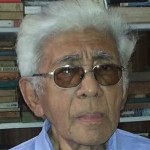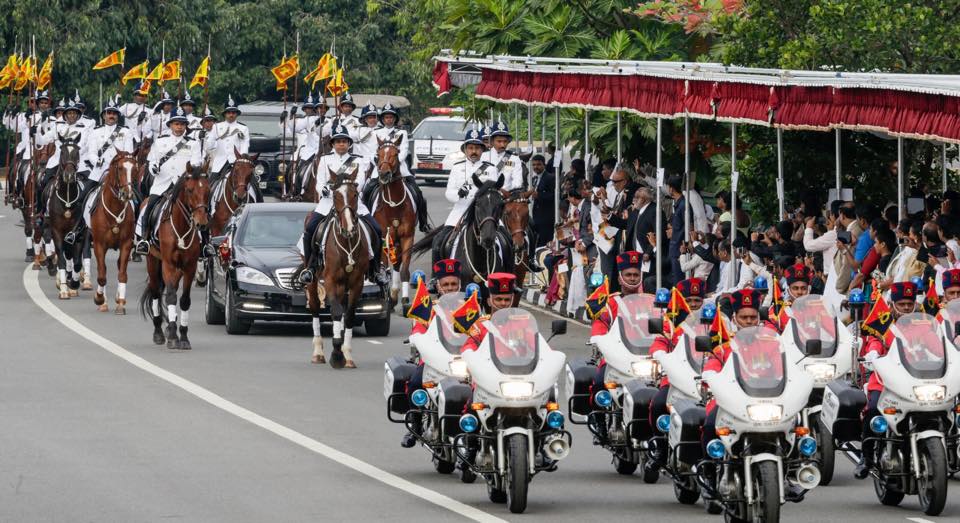Where Are We Going?
By Izeth Hussain -
The occasion of the 67th anniversary of our Independence prompts questions such as Where are we going? Where have we gone wrong? What should we do to get on to the correct path? And so on. Such questions that arise on the occasion of anniversaries are probably related to the deep human desire for self-renewal, on the part of individuals, societies, and nations. These questions have a particular urgency today because the present National Day comes shortly after the Presidential elections, the outcome of which was largely unexpected and is seen as epochal, something comparable to the General Elections of 1956.
There seems to be a broad national consensus that the questions that have to be addressed urgently relate to three areas, firstly democracy, secondly the economy, and the thirdly the nation. The problem with our democracy is that for most of the time since 1948 it has been deeply flawed, so that it has amounted to a monstrously hybrid quasi-democracy quasi-dictatorship, which sometimes threatens – as it did under former President Rajapaksa – to collapse into absolute dictatorship. The question, then, is how to bring about a fully functioning democracy and make it endure. Obviously Constitutional changes are required for this, notably a jettisoning of the Presidential system or a steep reduction in the powers of the President, plus the separation of power between the Executive, the Legislative, and the Judiciary, and so on. But, in my view, not even the most perfect democratic Constitution will ensure democracy on an enduring basis. For that the crucial desideratum is a dynamic civil society.
The way the new Government has disposed of Mohan Pieris provides a convenient illustration of that point. According to Prime Minister Ranil Wickremesinghe’s statement in Parliament the sacking of the former Chief Justice Bandaranayake was invalid on a technical point. But who should be the final arbiter on that question? Should it be the Executive, the Legislature, or the Judiciary meaning in this case the Supreme Court? There is also the ugly story that thugs invaded MP’s house and threatened him. It is true that the international community took a thoroughly dim view of the way CJ Bandaranayake was sacked, and therefore the Government may feel morally justified about the summary way in which it disposed of MP. However, the fact that it did not show much scruple about the niceties of the law is disturbing. It shows that democracy, which is meaningless without a fully independent Judiciary, is too serious a matter to be left to the politicians. In fact, politics are too serious a matter to be left to the politicians. I draw the conclusion that in Sri Lanka we can never have a fully functioning democracy on an enduring basis without an active and dynamic civil society to hold the politicians in check.
I would argue that without a fully functioning democracy we cannot deal effectively with the problems of the economy and the nation. Hardly anyone today would want to go back to a state-centric economy which has flopped practically everywhere, nor to the free market economy of the sort practiced under Regonomics and Thatcherism. John Major followed Thatcher and followed her economic policies to the letter. The result was that by 1994 no less than 20% of the British people belonged to the underclass. By “underclass” is meant not just those below the poverty line but those who had no pensions, no private means, and no jobs. On that very terrible record Thatcher had to be judged as one of the greatest criminals produced by Britain. However, we have to turn to the market for productivity and that means that we have to deal with the problems of growing inequality and increasing poverty. Those problems have to be recognized and addressed, but should the Government fail to do so, corrective action would not be possible without a fully functioning democracy, as Stiglitz has shown in his book The Price of Inequality. Let me add that the present Government has shown that it is prepared to address the problems: its mini-Budget significantly reduces the indirect taxes that hit particularly the poor.
As for the national problem, solving it will never be possible without a fully functioning democracy. I have shown in earlier articles that State terrorism from 1977 to 1983, which was precisely the period when democracy was being savaged, led to the 30-year war. Again I have shown that after 2009, when democracy was being savaged, it became impossible to move towards a political solution. If we had a fully functioning democracy all along the Tamil ethnic problem would never have assumed so violent a form. It is possible that there will be an agreement on devolution with the help of India. It will not mean anything unless it is put into practice fully and properly. But that will never be possible unless we have Governments that are prepared to respect democratic principles and norms.
So my answers to the questions with which I began this article are as follows: I am not sure where we are going, and neither can anyone else be sure, but I am sure that where we have gone wrong is in failing to practice democracy fully, and that points to the correct path that we have to follow to make Sri Lanka a good place to live in. I believe that these answers reflect a broad national consensus, except for the racist neo-Fascists. They have been the most significant factor behind the election debacle of MR, but they remain a formidable force. A new political configuration could be taking place in Sri Lanka with our two major parties converging to constitute the political mainstream. That would create space for the emergence of a new Party representing the racist neo-Fascist forces which have always been a formidable component of the SLFP. Buddharakita, whom SWRD used to call Buddy Racketeer, could ride again. Perhaps Mahinda Rajapaksa could play the role of Modi by leading the neo-Fascists and eventually taming them. Modi ascended to power by the ladder of the neo-Fascist RSS and the BJP, after which he has been trying to kick that ladder away. All this may be conjectural, but my point is that we have to think about how to cope with the neo-Fascists in Sri Lanka who simply cannot be wished away. Neo-Fascism has become a significant force in Sri Lanka, India, and many other countries.
It had to be expected on the occasion of this Independence Anniversary, considering all the rumors afloat about foreign hands behind MR’s election debacle, that the question would arise whether Sri Lanka is a truly independent country. The question now figures in the social media. I believe that there was benign foreign intervention, not malign foreign interference, and that Sri Lanka remains a truly independent country. It is a complex question that requires a separate article. I will conclude this one by elaborating on my point that our democratic future depends not on the Constitution but on whether or not Sri Lanka has a dynamic civil society. The sine qua non for a dynamic civil society is of course the free media. The Island of February 2 contained the following: “President Sirisena said that the Opposition couldn’t have defeated the Rajapaksas without the spearheading role played by the social media”. So, the struggle to establish a fully functioning democracy would not have been possible without the free media and the civil society.
The important point is that people are not automata which act mechanically in the way they are programmed, but human beings who are autonomous and act in consequence of the way they think. I concluded my last article by acknowledging that the recent elections could lead to a sharpening of our ethnic polarization, and the question arises whether our politics would become more not less conflictual than in the past. I wrote, “I don’t know, but I suppose it depends mostly on what we think and do to shape the future”. In that connection I had a quotation in mind that I could not trace at that time. It is by Keynes and reads as follows: “The ideas of economists and political philosophers, both when they are right and when they are wrong, are more powerful than is commonly understood. Indeed the world is ruled by little else. Practical men, who believe themselves to be quite exempt from any intellectual influence, are usually the slaves of some defunct economist”.





